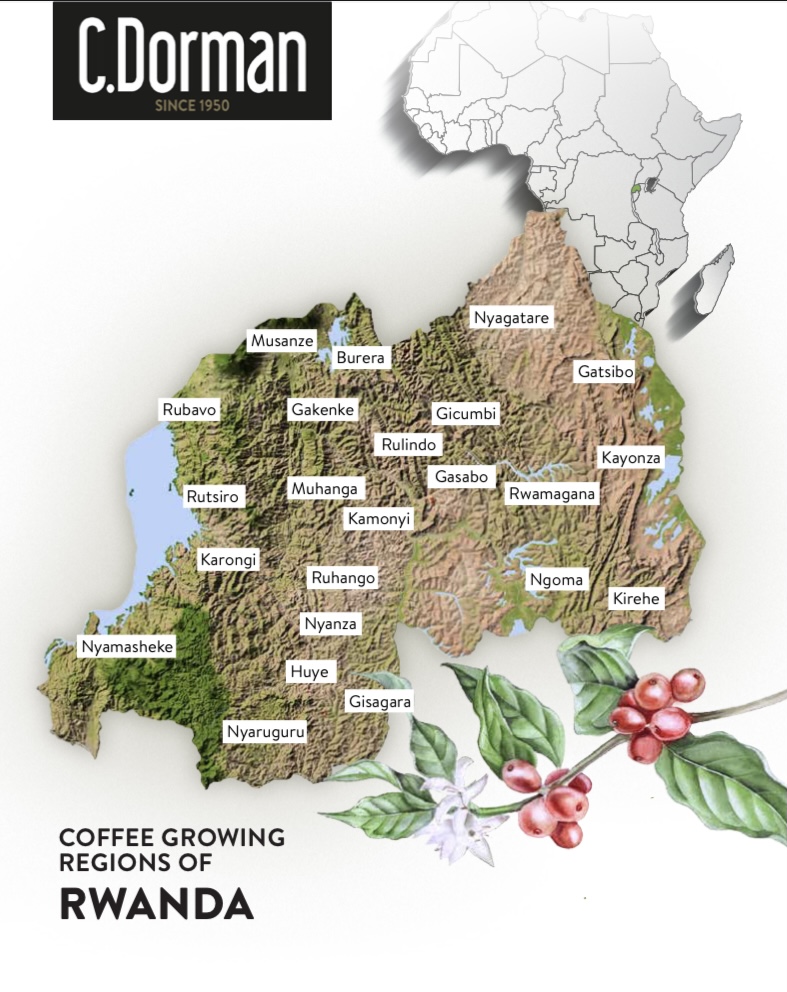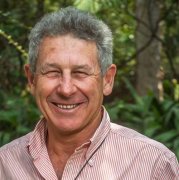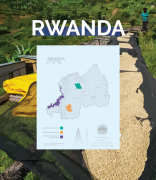Rwanda Pearl Project| How to drink coffee beans in Rwanda and the development history of its coffee industry
Project Pearl of Rwanda | how to drink coffee beans in Rwanda and the historical process of coffee industry development
Rwanda is not as important in the traditional coffee industry as Kenya and Ethiopia, but its rising reputation in recent years has attracted the attention of international boutique coffee. The coffee industry in Rwanda has a story, all of which is inseparable from the support of the government.

Rwandans started growing coffee a long time ago, but they can't buy a good price because of quality problems, and no one even knows about it. The reason is simple: farmers do not have a fixed procedure for washing coffee beans, nor do they process coffee fruits to specifications in time. Buyers buy coffee beans at $0.33 per kilogram, and farmers are fed and clothed by meagre profits earned at low prices, but remain poor.
In 1999, 220 coffee growers formed guilds in the Malaba area (formerly part of Butare province) to address the disease. Among the guild members, many farmers were separated from their loved ones by the 1994 mass massacre, while some husbands were jailed or were taken to the traditional Gacaca Court (gacaca) to face trial on charges of participating in the massacre. [4]. They named the guild "Abau Zam Gambi" (Abahuzamugambi), which means "people who work together to achieve their goals" in Rwandan. Farmers hope that by setting up this association, they will be able to work directly with Geely's exporters instead of peeling layers of skin through intermediary transportation companies, so as to increase profits. Farmers distribute their profits and spend them on tools, fertilizers and seeds to increase production
In 2000, the Mayor of Malaba requested development assistance from the National University of Rwanda (UNR), which is located near the city of Butare, and the following year, the National University of Rwanda assisted in the establishment of the Joint strengthening Rwanda Agricultural Partnership (PEARL). The PEARL project is also supported by several organizations: the United States Agency for International Development (USAID), Michigan State University, Texas A & M University, and many other Rwandan organizations, including the National University of Rwanda, the National Agricultural Laboratory (ISAR) and the Gejali Institute of Technology Management (KIST). In February 2001, PEARL began working with Abauzam Gamby to improve the quality of coffee to meet the standards of the professional coffee market in the United States, and then sell the coffee to the United States.
Project Pearl is a project to promote agricultural improvement in Rwanda through the Partnership for the Promotion of Agriculture in Rwanda (PEARL).

The goal of PEARL is to assist the Rwandan State in its efforts to rebuild from the effects of the 1994 Rwandan genocide and civil war. PEARL works with rural communities across Rwanda to generate income through the development of agricultural and market linkages. The Pearl Project is funded by the United States Agency for International Development and researchers in leading Michigan State University, Texas An and M Universities and various Rwandan institutions, including the National University of Rwanda, the Agricultural Research Institute in Rwanda's Kigali Institute and the National Coffee Council of Rwanda. University resources are directly channelled into rural areas to promote agricultural improvement and increase income. The project works with growers' cooperatives to produce and market a variety of agricultural products with a focus on coffee and cassava products. The growing focus on quality control and production consistency has led to the success of global exports. An example of this success is the production and sale of Malaba coffee from Malaba, Rwanda.
The above famous "Pearl Project", led by Tim Schilling, is a plan to promote agricultural improvement, increase farmers' incomes and achieve sustainability in Rwanda. Both the Pearl Project and the later SPREAD plan require that most of the income must be spent on agricultural producers.
The Pearl Project is not only from the improvement of agricultural technology due to rehe, but also bold ideas in line with international standards, in addition to dealing with education, training seed instructors and setting up extension institutions, to guide farmers to learn planting and pruning techniques, establish the details of the washing station, etc., introduce international buyers. To build a close network between buyers and sellers: participate in major global coffee fairs and promote Rwanda's national brands: close to the Joyo Cup and reach the highest end in the world
Important Notice :
前街咖啡 FrontStreet Coffee has moved to new addredd:
FrontStreet Coffee Address: 315,Donghua East Road,GuangZhou
Tel:020 38364473
- Prev

Knowledge Popularization of Science | History of Kenya Green Coffee manufacturer C.Dorman Company Kenya Coffee supply chain
C. Dorman Ltd was founded by Charles and Ellen Dorman in 1950 and quickly became a famous coffee export company in East Africa. Today, the company is still one of the leading exporters in the region. C. Dorman remains firmly committed to providing the highest quality coffee, while also supporting coffee in Kenya, Tanzania and Rwanda by investing in sustainable development programs
- Next

Rwandan coffee beans taste characteristics| History of Rwandan Coffee Varieties and Their Harvesting
Rwanda is not a traditional coffee-producing country. In fact, the local people do not have the habit of drinking coffee. Almost 100% of the coffee produced is exported, and the annual output is more than 18000 tons, which is a huge number. So where did all these coffee beans come from? Rwanda's harvest season is generally from March to August. Due to changes in weather conditions, there is usually a higher yield in April, but there are also July.
Related
- Detailed explanation of Jadeite planting Land in Panamanian Jadeite Manor introduction to the grading system of Jadeite competitive bidding, Red bid, Green bid and Rose Summer
- Story of Coffee planting in Brenka region of Costa Rica Stonehenge Manor anaerobic heavy honey treatment of flavor mouth
- What's on the barrel of Blue Mountain Coffee beans?
- Can American coffee also pull flowers? How to use hot American style to pull out a good-looking pattern?
- Can you make a cold extract with coffee beans? What is the right proportion for cold-extracted coffee formula?
- Indonesian PWN Gold Mandrine Coffee Origin Features Flavor How to Chong? Mandolin coffee is American.
- A brief introduction to the flavor characteristics of Brazilian yellow bourbon coffee beans
- What is the effect of different water quality on the flavor of cold-extracted coffee? What kind of water is best for brewing coffee?
- Why do you think of Rose Summer whenever you mention Panamanian coffee?
- Introduction to the characteristics of authentic blue mountain coffee bean producing areas? What is the CIB Coffee Authority in Jamaica?

